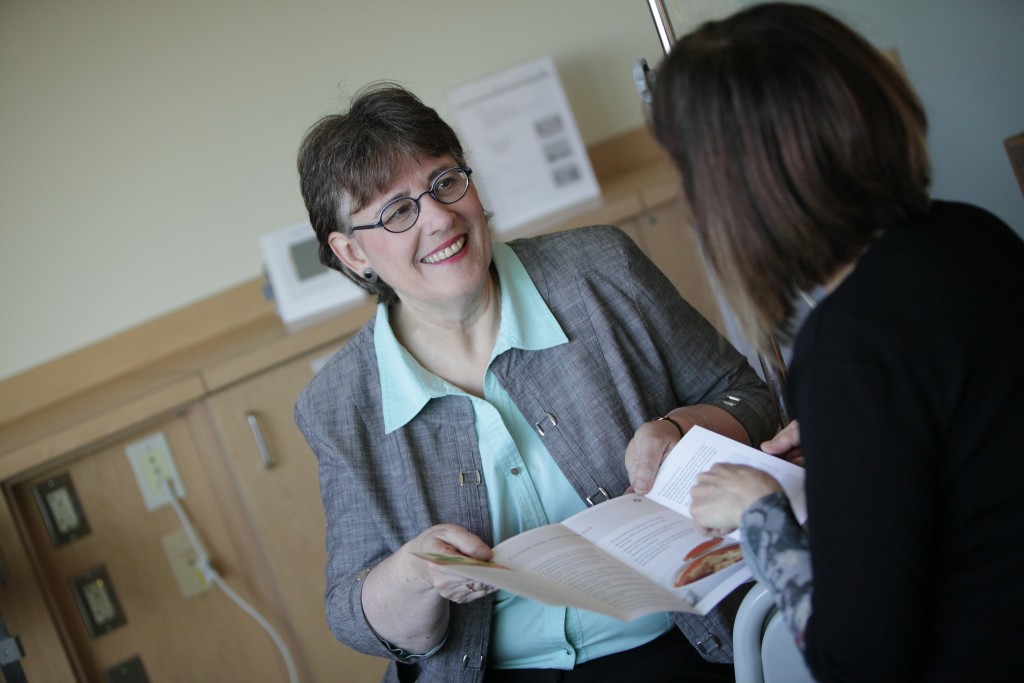Constipation is a common experience for kidney disease patients. It is uncomfortable and makes you feel bloated. Prolonged constipation is a serious medical condition that can cause a blockage of stool or tear the lining in the bowel.
“Constipation is an uncomfortable subject to talk about but it’s important. For dialysis patients, it can be deadly. Many phosphate-binding medications can cause severe constipation. Plus, most people on dialysis must limit fluids and fresh fruits and vegetables. That makes constipation a real issue.”
— Katy Wilkens, nutrition and fitness manager
What are the signs of constipation?
- Lack of daily bowel movements
- Hard stools more than 25 percent of the time
- Straining during bowel movements more than 25 percent of
the time

Be regular: tips to keep you going
Eat more fiber. More fiber in your diet will make your stools softer and easier to pass. High-fiber foods to try include whole grains, bran, and fruits and vegetables. Check the amount of potassium in your fruits and vegetables – some are high in fiber but also high in potassium, which can build up to dangerous levels between dialysis treatments. Check with your dietitian if you’re unsure. Increase fiber in your diet
slowly – too much too fast can cause gas, bloating and cramping.
Exercise. Daily physical activity will increase blood circulation and muscle tone in your intestines, making it easier to regulate your bowels. Take a walk, stretch, do light housework.
Create a bowel routine. Take some time each day to spend in the bathroom. Respond to your urges to have a bowel movement. Talk with your doctor about laxatives or stool softeners that might work for you.
If constipation is an issue for you, contact your health care team.
Tags: dialysis, nutrition, patient education, patient health, tips for patients
